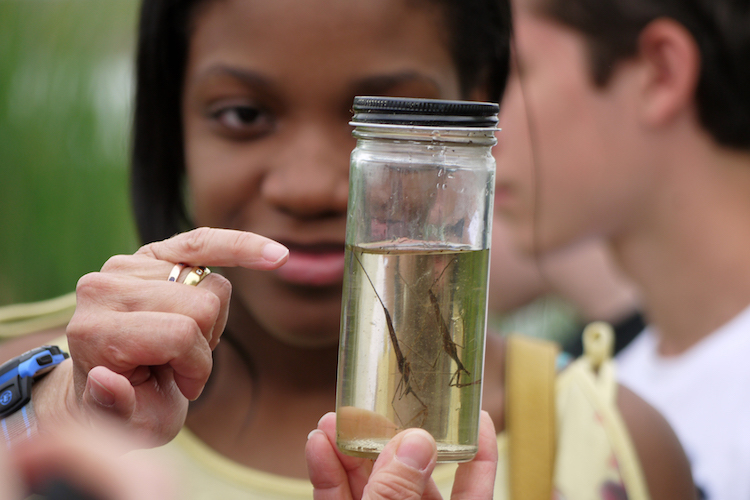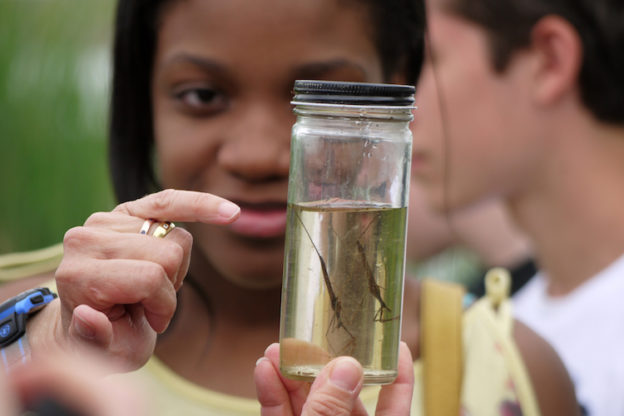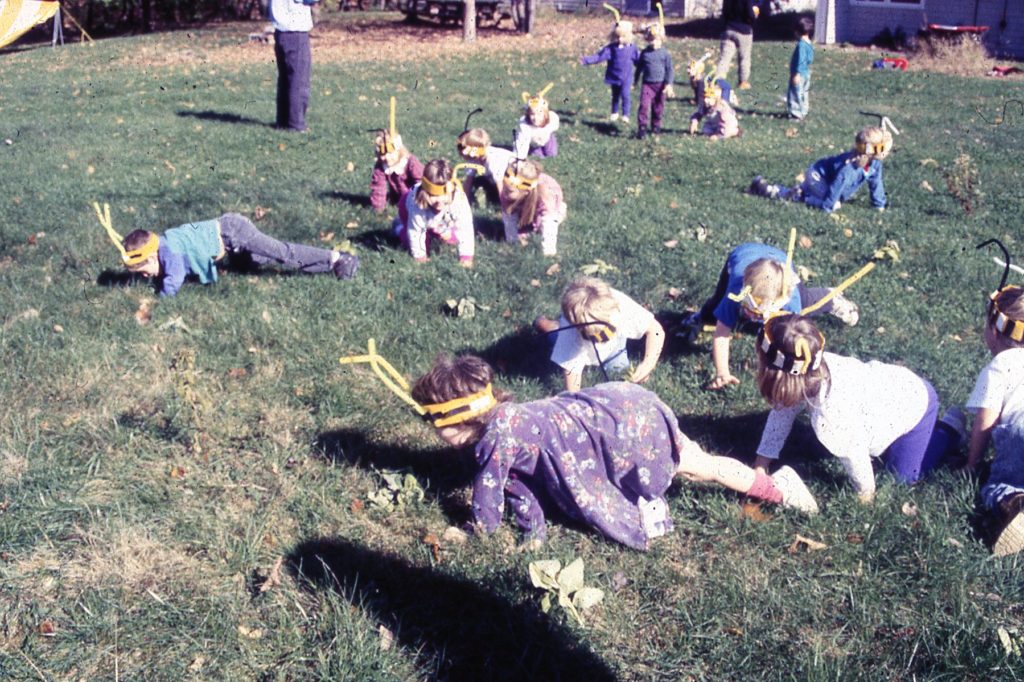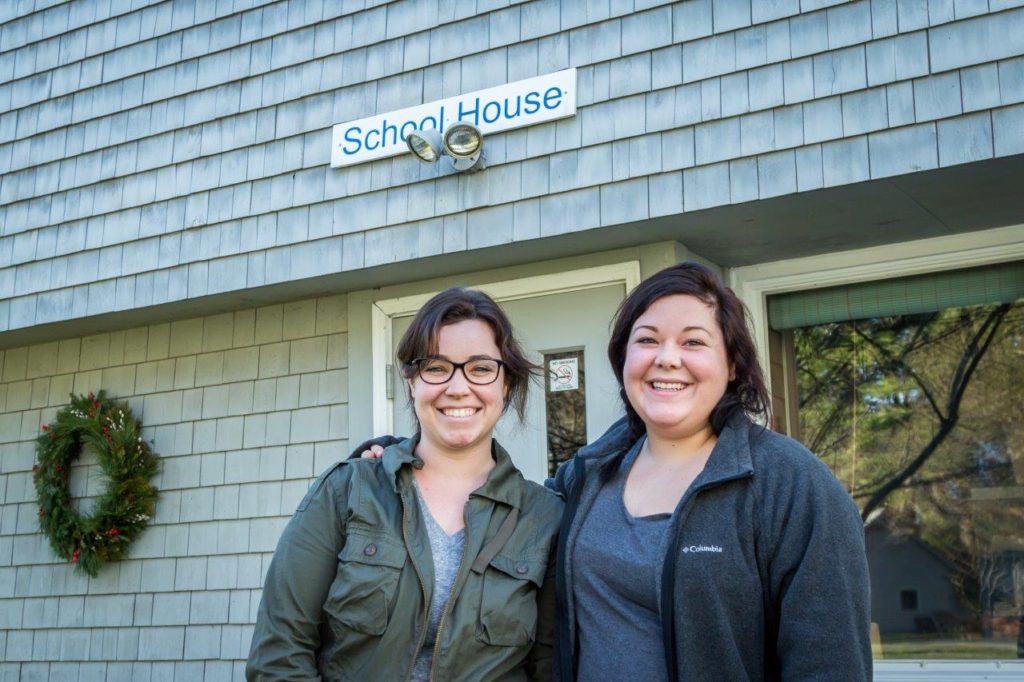Children have wonderful imaginations and an innate desire to explore the world around them through direct experience, and the natural world provides endless opportunities for exploration and discovery, questioning and investigation.
Spending time outdoors is often thought of as recreation but so much learning in the STEM fields (science, technology, engineering, and math) can happen at the same time.

Through play and exploration, children in our early childhood programs practice and build confidence in core science attitudes and skills, including:
- curiosity by asking lots of questions because the natural world provides endless opportunities for wonder
- creativity and inventiveness through the construction of animal homes with twigs and pine needles or imaging the life cycle of the dragonfly larvae to adult though the dramatic play at the pond’s edge.
- persistence as they collect maple seeds on a walk for experiments in aerodynamics back in the classroom
- critical thinking through the open-endedness of learning in and with natural materials by observation, asking questions, investigations, re-thinking things and asking more questions.
By listening to the different bird songs in spring, noting the arrival of a dragonfly larvae in the pond, chasing butterflies in a field, timing the length of time it takes a maple leaf to drop to the forest floor, or carefully noting the shape of winter’s first snowflake, children gain these documented benefits while participating as a part of the cycles and systems of nature, all the while deepening their connection, appreciation, and sense of stewardship for the environment.
At Mass Audubon wildlife sanctuaries, STEM learning is a part of everything we do. Every one of our school programs is designed to integrate with the Massachusetts State Science and Technology/Engineering Curriculum Framework, but our commitment goes even deeper.
Hundreds of classroom educators attend professional development programs run by Mass Audubon each year to increase their comfort with integrating nature play and learning into traditional preschool and elementary education curriculum. And through our nature preschools, camps, and school programs, we reach tens of thousands of children annually.
Beyond the traditional educational setting, STEM thinking is reflected in how we invite people to approach the environment and how we manage our sanctuaries. Scientific practices and monitoring guide the stewardship of our properties, with scientific data collection taking place year-round related to breeding bird activity, wildlife populations, the spread (and control) of invasive species, and many more research opportunities. We embrace evidence-based thinking in all we do, and we invite you to join us in exploring how learning STEMs from nature.
Get outside where every day can become a STEM day! Visit a Mass Audubon sanctuary near you to explore on your own or through one of our thousands of hands-on educational programs.
– Kris Scopinich (Mass Audubon Director of Education)
and Renata Pomponi (Sanctuary Director, Drumlin Farm)




